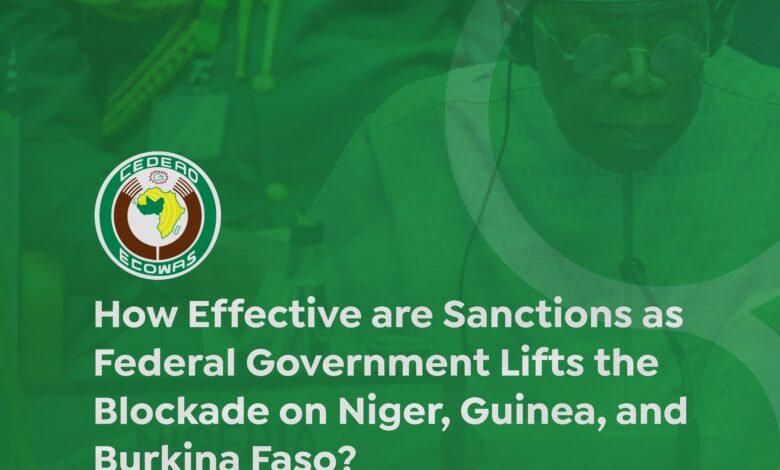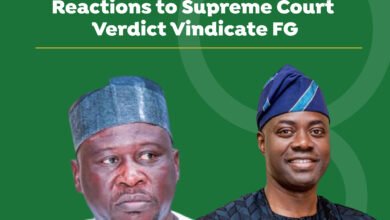How Effective are Sanctions as Federal Government Lifts the Veil on Niger, Guinea, and Burkina Faso?

In an unexpected move, the Nigerian President, Bola Ahmed Tinubu, proposed to lift sanctions on Niger, Burkina Faso, and Guinea at the extraordinary summit on peace, political and security situation, in Abuja, Nigeria, on Saturday February 24, 2024. The new idea involving a collaborative approach to the political and economic challenges in these West African countries will be featured in this proposal and is a departure from the general punitive measures emphasizing dialogue and mutual support within the Economic Community of West African States (ECOWAS).
Initial sanctions were aimed at these politically unstable countries with the hope to get them address lingering human rights concerns and to compel them into adhering to democratic principles. While the sanctions have worsened the economic difficulties in these countries, most of which are borne by the common people, the leaders have not instituted the desired political. Consequently, lifting the sanctions shows President Tinubu’s admittance to the reality that economic difficulties can act as a hindrance rather than a tool for the transition to strong governance, especially for African nations.
The proposition to lift the sanctions by President Tinubu, beyond its empathic quality, signals the administration’s preference for regional collaboration over national isolation. This approach recognizes the intricate problems that these countries are dealing with, ranging from political instability to security challenges, and how the sanctions might not be the veritable tool that will achieve the desired results. Such a style of leadership is a way of effecting peace and development in the region by considering dialogue and cooperation as the major means. This position implies a shift from the one-dimensional equation of democracy with security to giving the greatest importance to economic stability and well-being of the citizens as a foundation for democratic governance and security.
Accordingly, the removal of initial sanctions is not regarded as the ultimate goal but rather as a step towards reinvigorating these economies and thereby making room for political and social reforms. It not only puts a strong point across about the value of giving nations a second chance, but also offers a window of hope for a transformed world where everyone works together.
While ECOWAS and the international community ponder President Tinubu’s proposal, the road forward needs to be characterized by a commitment to dialogue, an examination of the underlying causes of instability and the people of West Africa’s wellness. A further concern is the historical impacts and achievements of sanctions across the world, with leaders having to think deep and be hesitate with the quick inclination to sanctions.
Essentially, the plan to lift the sanctions against these countries by President Tinubu symbolizes a ray of relief, with regards to a more peaceful, prosperous, and a collaborative West Africa. It also brings to attention the need of new diplomatic and administrative techniques to put the interests of people ahead of everything else.This is an expression of the fact that solidarity provides power and that the shared goals are our main assets for the future.





